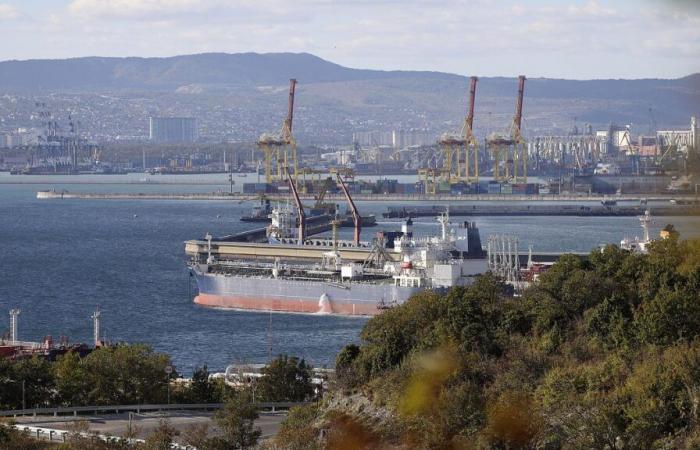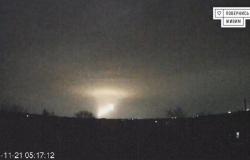MEPs adopted a resolution on Thursday which wants to limit Russia’s ability to export its crude oil using obsolete ships and thus escape EU and G7 sanctions.
ADVERTISEMENT
This is one more call in the effort to combat the evasion of Western sanctions against Russia. The European Parliament calls on the EU and member states to act against the “ghost fleet” developed by Moscow.
MEPs adopted a resolution on Thursday (14 November) calling on the Union to take action against these tankers. They ask the 27 tointensify controls and drone and satellite inspections. All boats sailing in European waters without insurance known should be sanctioned, according to the text.
The parliamentarians also urge member states to ban all imports of Russian fossil fuels, including liquefied natural gas (LNG).
Circumvent Western sanctions
To limit Russia’s financial capacities, and therefore to finance its war in Ukraine, the EU and the G7 decided in 2022 to cap Russian oil. The limit is set at 60 dollars per barrel.
To continue to sell its black gold at a high price, Moscow would therefore have invested around 9 billion euros in a “ghost fleet“consisting of obsolete shipssometimes 20 years old, in poor condition and which are not always insured. The goal is to limit the traceability of boats, which can also fly foreign flags: Gabon, the Cook Islands, Panama, Liberia.
However, this system is nothing new from other countries like Iran, Venezuela or North Korea have already used a shadow fleet. But MEPs emphasize that Moscow stands out for the scale and degree of sophistication of its operations.
These Russian ships have for main destinationsIndia, China and Turkey. The oil would then be refined on site and could therefore arrive in Europe in the form of derivative products and bypass sanctions.
“Around 600 ships of this ghost fleet operate mainly in the Baltic and Black Seas“, explains MEP Rasa Jukneviciene (PPE).
Other reports mention the figure of 1,400 boats which would make it possible to export 70% of Russian oil by sea according to the Kyiv School of Economics.
To escape radar, Moscow uses different stratagems. THE transbordements oil is carried out on different ships on the high seas. As part of these operations, the oil can be mixed with others in order to conceal the exact origin of the black gold. THE geolocation systems satellites, called automatic identification system (AIS) transponders, can also be deactivated to cover their tracks. Boats can finally transmit false data to escape surveillance.
All these devices threaten safety at sea and accentuate the risk of collision and oil spills. However, several European countries would be affected by these oil spills in the event of an accident.
“We call for a ban on these dangerous ship-to-ship transfers, as well as additional funding for rapid response capabilities (in the event of an oil spill) because every day of delay will cost billions” euros, insists MEP Martins Stakis (the Greens).
The European Parliament also emphasizes that this “ghost fleet” represents a threat to European security. It could be used in possible hybrid operations against the interests of a Member State.






